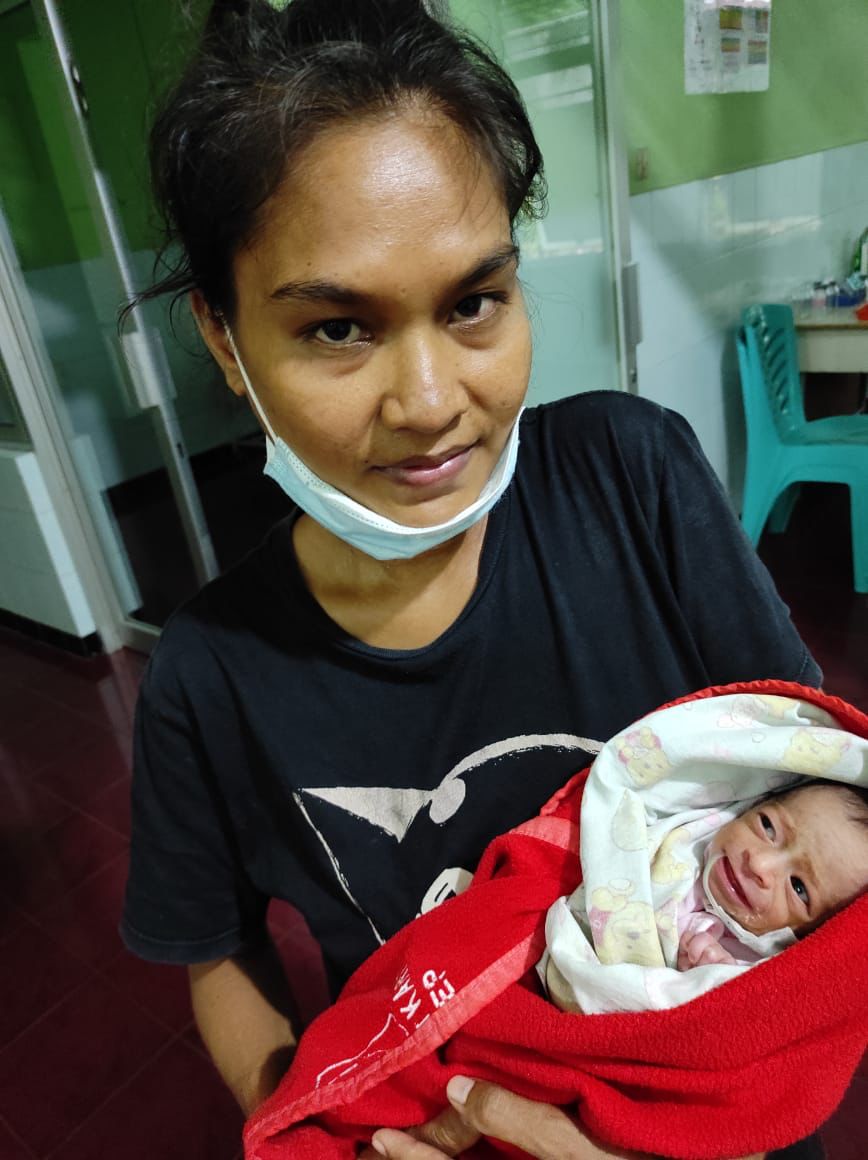Helping an Indonesian Mother and Her Newborn Breathe Easier with Lifesaving Equipment
Published on May 6, 2022

Martayana was at only 28 weeks of pregnancy when she had to deliver her baby to save both their lives.
She and her husband, Bernadette, were sent to Karitas Hospital, the only referral hospital in their home of Sumba Barat Daya Regency — a rural area in the Indonesian province of East Nusa Tenggara — that provides emergency services for mothers and babies. Here, Martayana gave birth to a baby girl through cesarean section who weighed only about 3.3 pounds when she was delivered.
“Before the operation, I was afraid. The doctor said that if I didn’t do the surgery, it could endanger the life of one of us,” says Martayana.
Prematurity is the number one cause of under-five mortality in the world. Premature babies often have trouble breathing. Martayana’s baby was given only a 40 percent chance of survival without access to continuous positive airway pressure (CPAP), a machine that can deliver high concentrations of oxygen to premature babies.
Dr. Dwiyathi Utami and her team at the hospital immediately put the baby on the CPAP machine, ensuring she was in stable condition and could be transferred to the neonatal intensive care unit to increase her weight for a couple of weeks.
The CPAP machine used to save Martayana’s and Bernadette’s baby is a recent addition to Karitas Hospital. Before, Dr. Dwiyathi Utami had few options to support unstable or very low birth weight babies since the hospital couldn’t afford the expensive lifesaving equipment. Doctors and nurses would warm babies with plastic wrap, towels, and medical gloves filled with hot water. According to official data from the Health Office in Sumba Barat Daya Regency, where Martayana and Bernadette live, 14 mothers and 34 newborns died in the area in 2021.
In 2021, the MOMENTUM Country and Global Leadership program, through its Hospital Mentoring Activity, helped identify what Karitas Hospital needed to accommodate essential care for emergency obstetric and neonatal cases. The MOMENTUM team then facilitated discussions with the local government to respond to recommendations. To work within the financial constraints of the district government, officials issued a regulation to lend essential equipment from the Reda Bolo Public Hospital, a district hospital that is still under development and could not yet use the equipment. The local government and the Karitas Catholic Foundation then signed an agreement for using the equipment: one infant warmer, one CPAP machine, and two incubators.
“Now infant mortality is much reduced and the impact is immediately felt. Before the equipment was available, I was very worried because in a day we have to incubate up to three babies with our improvised equipment,” says Dr. Dwiyathi Utami.
Going forward, the local government has committed to continuously supporting Karitas Hospital to improve its quality of obstetric and neonatal care, while also preparing Reda Bolo Hospital with the necessary resources and equipment to operate as a primary referral hospital. In the meantime, Karitas Hospital has committed to providing pediatric support to the Reda Bolo hospital and MOMENTUM has supported the Reda Bolo Hospital to improve their plans and activities to recruit and train key staff, and to procure essential equipment.
To learn more about how we engage with local governments within Indonesia to improve maternal and newborn health care, check out our work here.

